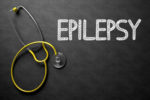As the younger child brain is not developed, children can develop an infection in the area that regulates temperature. Febrile means related to fever and the temperature is usually always over 38 – 39°C. Febrile convulsions are seizures that sometimes happen in a child with a high temperature. They usually occur between the ages of […]
Types of Seizures
Seizures are broadly categorised into two types:
- Focal Seizures: Affect a specific brain area and may involve motor or sensory symptoms.
- Generalised Seizures: Involve both sides of the brain and can include various subtypes such as tonic-clonic, absence, and atonic seizures.
Common Seizure Types
Tonic-Clonic Seizures
Formerly known as grand mal seizures, these involve a loss of consciousness, body stiffening (tonic phase), followed by jerking movements (clonic phase).
Absence Seizures
Characterised by brief lapses in awareness, often seen as staring spells, primarily affecting children.
Febrile Convulsions
Seizures triggered by high fever in young children, typically between six months and five years of age. While alarming, they are often harmless and do not indicate epilepsy.
First Aid Response for Seizures
- Stay Calm: Please keep yourself composed to help you effectively.
- Protect from Injury: Clear the area of hard or sharp objects.
- Time of the Seizure: Note the duration to provide accurate information to medical personnel.
- Do Not Restrain: Allow the person to move freely during the seizure.
- Do Not Place Anything in the Mouth: Avoid inserting objects or fingers into the person’s mouth.
- After the Seizure: Once movements have ceased, place the person in the recovery position to maintain an open airway. :contentReference[oaicite:1]{index=1}
- Stay with the Person: Remain present until they are fully alert.
- Seek Medical Assistance: Call emergency services if the seizure lasts longer than five minutes, another seizure follows immediately, or if the person does not regain consciousness.
Management and Prevention
- Medication Adherence: Consistently take prescribed anti-epileptic drugs to control seizures.
- Avoid Triggers: Identify and steer clear of factors that may precipitate seizures, such as sleep deprivation, stress, or flashing lights.
- Regular Medical Consultations: Maintain routine appointments with healthcare providers to monitor and adjust treatment plans as necessary.
- Educate Support Network: Inform family, friends, and colleagues about seizure first aid to ensure appropriate assistance during an episode.
Further Resources
Expand your knowledge on seizures and epilepsy:
For comprehensive first aid training, enrol in our First Aid at Work Annual Refresher (VTQ) course.

